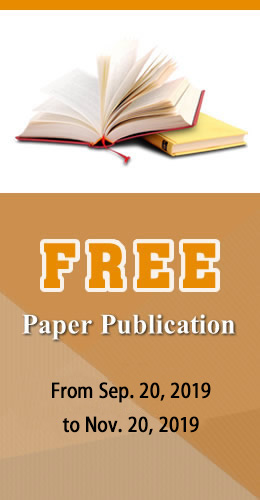Assessment of Sorghum Productivity with and Without Application of Terraces in Traditional Rain Fed Areas in Kassala State-Sudan
[1]
Khidir Ramadan Sadig, Department of Agricultural Economics, University of Kassala, New Halfa, Sudan.
[2]
Sumaya Mohammed Mustafa, Department of Agricultural Economics, University of Kassala, New Halfa, Sudan.
[3]
Ibrahim Suliman Mohamed Ismail, Department of Agricultural Economics, University of Kassala, New Halfa, Sudan.
[4]
Mohamednour Abdelrahim, Drought Resilience Programme Department, Intergovernmental Authority on Development, Gedarif, Sudan.
This study was mainly designed to determine, analyze, and compare the Sorghum productivity with the water harvesting techniques "terraces” application in the traditional rain fed areas in kassala state. The study area has been stratified into three zones; namely north Kassala (NK), south east Kassala (SWK), and south west Kassala (SEK), based on the amount of average annual Rainfall precipitation in each zone Five locations were randomly selected from each zone. Stratified random sampling was followed for the purpose of the study, and then a desired sample size of 10% was selected in each location. Both primary and secondary data were collected and analyzed using the Scientific Package for Socio-economic Studies (SPSS), independent t-test was used to answer research hypotheses, and compare between zones in the study universe. The average productivity of sorghum/feddan over 10 years (2005-2014) compared between respondents who users and none users of WHTs (terraces) in NK, SWK, SEK, Zones. Farmers who use WHTs (terraces) in SEK have higher productivity/feddan than the farmers who use the WHTs (terraces) in SWK and NK, and this is attributed to the higher annual rainfall precipitation in SEK zone, and the farmers who use the WHTs in SWK have a high productivity/feddan than the farmers who use the WHTs (terraces) in NK. And this is attributed to the high annual rainfall precipitation in SWK comparing to the annual rainfall in NK.
Net Return, Sorghum Productivity, Water Harvesting Technique (Terraces), Traditional Rain Fed
[1]
Ageeb Osman, 2001. Sorghum and wheat production in Sudan.
[2]
Ali Abdalla, Ministry of Agriculture, and Irrigation Kassala state annual report, 2009.
[3]
Critchley, W. and Siegert, C. 1991. Water Harvesting Manual. FAO Paper AGL/MISC/17/91, FAO, Rome.
[4]
Kunze, D. 2000. Economic assessment of water harvesting techniques: a demonstration of various methods. Quarterly Journal of International Agriculture 39(1): 69-91.
[5]
MAFIL Annual Report Kassala State, 2015.
[6]
Mamoun Ibrahim Dawelbeit, Consultant- Sudan, mach, 2008. Makombe, G., Sampath, R. K., 1999. A benefit-cost analysis of smallholder irrigated farms in Zimbabwe. Irrigation and Drainage Systems 13 (1), 1–12.
[7]
Oweis, T., and Hachum, A., (2006). Water harvesting and supplemental irrigation for improved water productivity of dry farming systems in West Asia and North Africa. J. Agricultural Water Management, 80, 57–73.
[8]
Prinz, D., S. Wolfer. 1999. Traditional techniques of water management to cover future irrigation water demand. Z. f. Bewässerungswirtschaft, 34 (1), 41-60. ISSN 0049-8602.
[9]
Prinz, D. 1996. Water Harvesting – History, techniques, and trends. Z. f. Bewässerungswirtschaft 31, (1): 64.
[10]
SIFSIA and FAO (2008). Determinants of Current Food Price Hikes and their Implications in the Northern States of Sudan.







